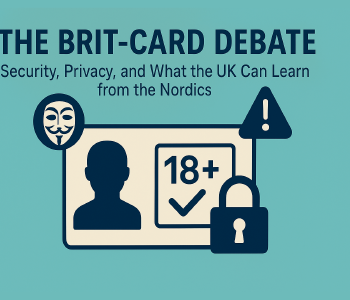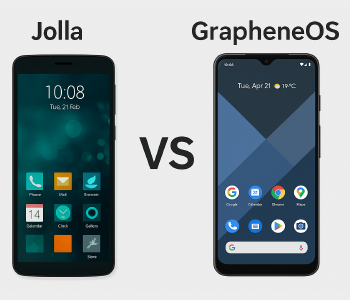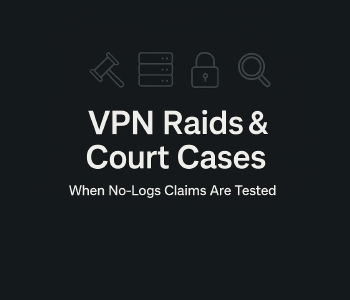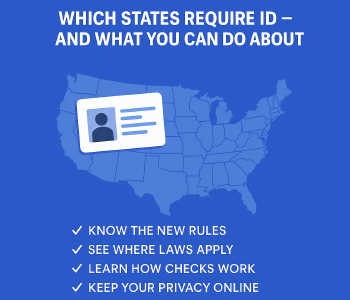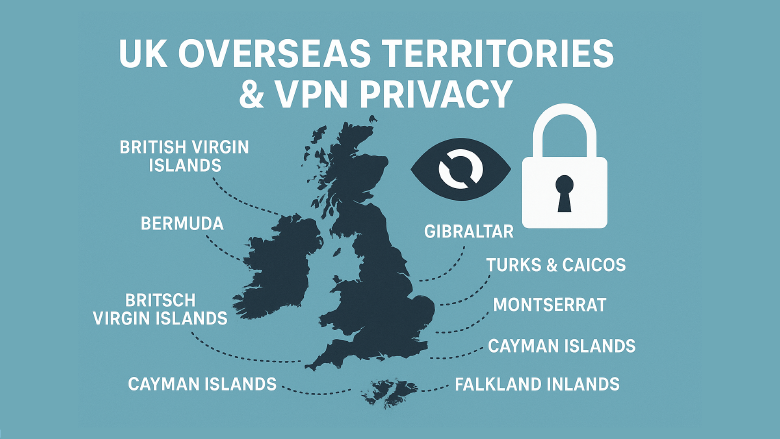
🇬🇧🏝️ UK Overseas Territories & VPN Privacy: Hype vs. Reality
Marketers love to say a VPN is “based in the British Virgin Islands” or “outside the 5/9/14 Eyes.” That sounds great — and sometimes it is — but the nuance matters. UK Overseas Territories (OTs) are not the UK, yet the UK retains important levers of control (defense, foreign affairs, national security). If you’re picking a VPN for jurisdictional reasons, you should understand where those levers might touch your data.
This guide breaks down the key OTs you’ll see in VPN marketing — plus a quick word on the separate Crown Dependencies (Jersey, Guernsey, Isle of Man).
🧭 Quick refresher: OTs vs. Crown Dependencies
- UK Overseas Territories (OTs): Self-governing to varying degrees; the UK handles defense, foreign affairs, and (crucially) national security. Examples: British Virgin Islands (BVI), Cayman Islands, Gibraltar, Bermuda, Turks & Caicos, Anguilla, Montserrat, Falkland Islands, St Helena.
- Crown Dependencies (CDs): Self-governing possessions of the Crown; not part of the UK or OTs. Examples: Jersey, Guernsey, Isle of Man.
Both groups run their own courts and laws, but neither is a sovereign state entirely insulated from UK pressure on matters of security.
TL;DR
- Outside the Eyes ≠ Outside Influence. OTs aren’t formal members of the 5/9/14 Eyes alliances, but the UK can still exert pressure via national-security channels and diplomatic/legal cooperation.
- Audits beat addresses. A strong no-logs design, third-party audits, and ram-only infrastructure usually matter more than a postal code.
- Verify HQ claims. Providers shift registrations. Always confirm on a VPN’s About/Privacy pages and (if needed) in local corporate registries.
🧱 What “outside the Eyes” actually buys you
Being outside a surveillance alliance tends to raise the friction required for intelligence sharing. It does not eliminate:
- Court orders issued locally,
- Mutual legal assistance (requests routed via the UK or bilateral agreements),
- Political or regulatory pressure applied through the UK’s reserved powers.
So treat OT jurisdictions as potentially better than the UK itself, but not a magical cloak.
🗺️ Territory-by-territory snapshot
Legend
• Eyes status: Not a member of 5/9/14 Eyes alliances as a sovereign state
• Data-retention: No broad, telecom-style blanket data retention specifically aimed at VPNs (to public knowledge); targeted orders can still apply
• Practical takeaway: What this means for a privacy-minded VPN user
| Territory | Eyes status | UK leverage (high-level) | Data-retention landscape | Practical takeaway |
|---|---|---|---|---|
| British Virgin Islands (BVI) | Outside | UK retains defense/foreign affairs; can coordinate on nat-sec | No well-known blanket VPN retention | Popular with VPNs; rely on audits/ram-only/no-logs, not just the address |
| Gibraltar | Outside (post-Brexit UK-linked) | UK responsible for defense/foreign affairs; local courts active | Aligns broadly with UK/EU-style privacy principles; targeted orders possible | Reputable privacy shops operate here; look for transparency reports and audit trail |
| Cayman Islands | Outside | UK responsibilities apply; strong financial-sector rules | No broad VPN retention regime publicly known | Reasonable on paper; confirm provider’s legal entity and warrant policy |
| Bermuda | Outside | UK responsibilities; mature regulatory environment | No broad VPN-specific retention known | Similar story: scrutinize provider design + audits |
| Turks & Caicos / Anguilla / Montserrat | Outside | Similar UK responsibilities | Small jurisdictions; sparse VPN case law | Rare HQ choices; treat claims conservatively |
| Falkland Islands / St Helena | Outside | As above | Very small markets | Rare in VPN context; HQ claims would be unusual |
| Akrotiri & Dhekelia (UK bases in Cyprus) | N/A | UK sovereign military bases | Not a commercial HQ jurisdiction | Not relevant for VPN HQs |
| British Indian Ocean Territory | N/A | UK-administered, no permanent population | N/A | Not relevant for VPN HQs |
Crown Dependencies (comparison): Jersey, Guernsey, Isle of Man are often marketed as “privacy friendly.” They’re not in the Eyes alliances, but the UK still influences defense/foreign affairs. Treat similar to OTs: design + audits over jurisdiction hype.
🔎 “Based in X” — how to verify it
When a provider says “BVI-based” or “Gibraltar-based,” do this quick check:
- Corporate entity: Find the full legal name and jurisdiction on the About or Privacy Policy page.
- Registry lookup: Cross-check the entity in the territory’s corporate registry (where available).
- Audit library: Look for independent audits (no-logs, infrastructure, app security) and security assessments published in the last 12–24 months.
- Infrastructure design: Favor providers with RAM-only servers, ephemeral logs, reproducible builds/open-source apps, and transparent warrant canaries or law-enforcement guidelines.
- Ownership disclosure: Prefer clear ownership and leadership disclosures over shell-entity opacity.
🧰 What matters more than the map
Even in a “good” jurisdiction, a VPN can quietly keep too much data. Prioritize:
- No-logs architecture by default: Services that technically cannot retain identifying data (not just promise not to).
- Regular, scope-meaningful audits: Not a one-pager; look for methodology, sample sizes, and remediation follow-ups.
- Minimal signup friction: Email-optional accounts, anonymous tokens, or one-time account numbers reduce linkability.
- Payment opacity: Support for privacy-preserving payments (e.g., Monero, privacy-optimized Bitcoin flows, or even cash by mail) if you need it.
- Open-source clients + reproducible builds: Lets the community verify what’s shipped.
- Transparent abuse handling: Clear policy for DMCA/abuse that doesn’t require keeping activity logs.
🧾 Notable VPN presence in OTs (historical & current)
You’ll commonly see:
- BVI registrations from well-known providers (historically and currently).
- Gibraltar as a base for boutique privacy-focused services.
- Cayman claims from some budget and mid-tier providers.
Because corporate registrations change and some companies use multiple entities (ops vs. IP holding), always re-check current disclosures before you buy.
✅ Practical picks if you want distance from UK/EU/US influence
Jurisdiction is only one layer. If your goal is maximum practical privacy, consider providers that pair non-Eyes jurisdictions with strong, verifiable engineering practices (open-source clients, RAM-only, frequent audits, minimal signup). Examples often cited by privacy communities include providers headquartered in Switzerland, Panama, Iceland, Malaysia, or Romania — but evaluate them by the criteria above, not just the flag.
📌 Bottom line
UK Overseas Territories can be a sensible jurisdictional choice — they’re outside formal Eyes alliances and have independent courts. But because the UK retains national-security influence and legal cooperation channels exist, the safer strategy is to buy on proof, not on postcards:
- Choose providers with recent, independent audits and no-logs designs.
- Verify the actual corporate entity and location.
- Prefer open-source apps, RAM-only infrastructure, and privacy-preserving signup/payment.



